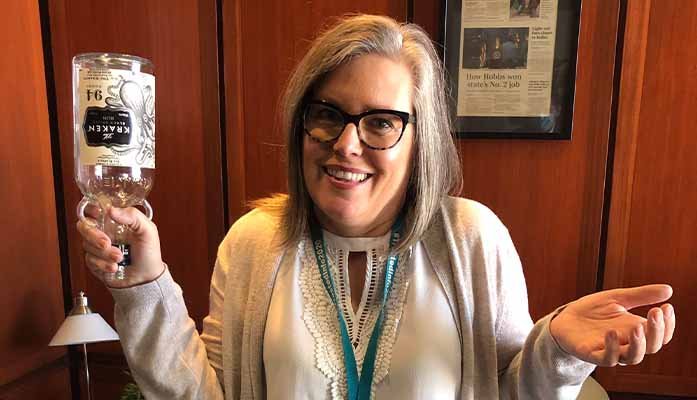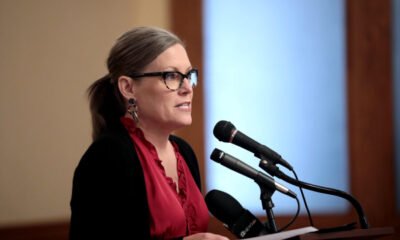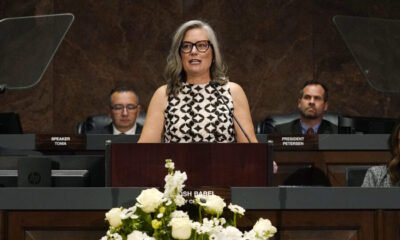biological sex
March Celebrated Women’s History Month: But Is Governor Hobbs Clear on What Defines a Woman?

By Christy Narsi |
March marked Women’s History Month, yet Governor Katie Hobbs notably overlooked this significant observance on her social media platforms, raising eyebrows across Arizona.
This silence may reflect an understanding of the backlash she might encounter, given prevailing voter sentiments regarding women’s representation and rights.
In a notable deviation from party ideals, Governor Hobbs recently vetoed HB2062, known as Arizona’s Stand With Women Act. This legislation aimed to reaffirm the definitions of ‘woman’ and ‘female’ to safeguard women’s rights from potential misinterpretation by the judicial system. By vetoing this act, she effectively sidelined a crucial issue for many Arizonans.
As a mother and educator, I advocate for clear definitions that include terms like mother, daughter, and sister. These words signify more than roles; they carry essential meanings that must be preserved to uphold women’s dignity and safety. Despite claims from some activists that such definitions are subjective, they are anchored in biological reality, which remains vital for legal frameworks.
This topic extends beyond mere definitions. It touches on pressing issues like the safety of women in prisons. Currently, only two states have regulations ensuring that women’s prisons house only biological females. The situation has led to instances where men identifying as women, some with histories of violence, are placed in facilities alongside women, jeopardizing the safety and well-being of female inmates.
Such realities reflect broader societal challenges, particularly for survivors of sexual assault who find themselves in vulnerable situations due to these policies. This is evident as women face increasing intrusions into their private spaces such as locker rooms, sororities, and shelters, all designed to foster safe environments for women.
The call to action is clear: Arizonans must respond. Engaging in conversations about these issues—whether in community centers, churches, or workplaces—is essential. Awareness can galvanize support against policies that undermine women’s rights. Once residents grasp the implications of decisions like Gov. Hobbs’ veto, they can advocate profoundly for the rights and opportunities of all women throughout the state.
Christy Narsi resides in Surprise, AZ, and serves as the national chapter director for the Independent Women’s Network. Her commitment lies in empowering women to create meaningful impacts in their communities.








![Members of the Arizona House of Representatives vote during a third reading of nearly three dozen bills at the Arizona State Capitol on March 4, 2025. [Monica D. Spencer]](https://arizonanews.org/wp-content/uploads/2025/06/SR-347-Secures-53M-in-Third-State-Budget-Draft-Awaiting-400x240.jpg)
![Members of the Arizona House of Representatives vote during a third reading of nearly three dozen bills at the Arizona State Capitol on March 4, 2025. [Monica D. Spencer]](https://arizonanews.org/wp-content/uploads/2025/06/SR-347-Secures-53M-in-Third-State-Budget-Draft-Awaiting-80x80.jpg)








